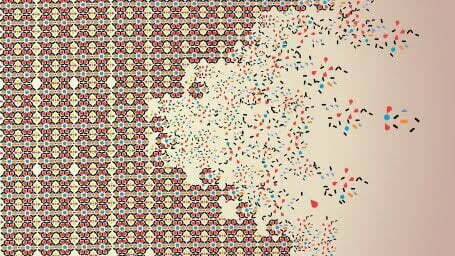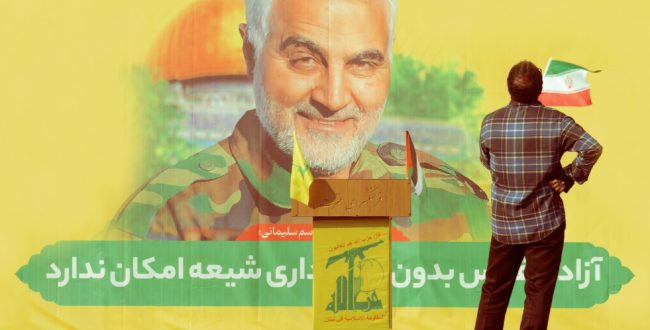Leading Arab dailies Al-Hayat, Asharq Al-Awsat and Al-Ahram ran several unusual articles in recent months. One piece was written by Kurdish-Syrian author and literary translator Nizar Agra, who lives in Sweden. Agra tends to stay away from politics, other than occasional pieces on the Kurdish minority in Syria (he used to be a PKK supporter in the distant past). Yet in December 2016, he published an opinion piece in Al-Hayat titled “The Conflict with Israel is Diplomatic and Should Be addressed Rationally”. The article was extraordinary, especially by Al-Hayat standards.
As is to be expected, Agra analyzes the Middle East conflict from a literary perspective, drawing on the writings of Jorge Luis Borges to distinguish fiction from reality. Agra believes that the Arab world largely addresses the Palestinian problem as a fantasy, in which the Palestinians are not real people with strengths and failings and the Israelis are aliens. Consequently, Arabs by and large do not see the Israeli-Palestinian conflict as yet another clash the kind that so many nations and countries undergo, but rather as a timeless battle between the forces of light (the Palestinians) and of darkness (Israel).
Agra also holds that many Arab and Muslim intellectuals are irrational in their attitudes towards Israel and the Jewish people, and are willing to believe any claim made about Israel without fact-checking. In this context, he sees little difference between the scholarly arguments of Edward Said and the anti-Israeli songs of Egyptian pop singer Shaaban Abdel Rahim (‘Sha’bola’).
From there, says Agra, it is easy to take the next step into ignoring the fact that Israelis are human. He adds that the occupation of the Palestinian territories is not substantially different from other occupations around the globe, such as in Turkey, Iran or Kashmir. Agra also notes that Palestinians killed by Israel do not exceed the number of casualties in fighting within the Arab world or between Palestinians themselves.
In another article, Abdulrahman Al-Rashed, former editor of the popular daily Asharq Al-Awsat, responded with equanimity to the idea that the US embassy in Israel would move to Jerusalem. In fact, he claimed, the only change would be the president’s determination to implement a resolution that already passed in Congress.
Al-Rashed analyzed the issue on three levels: terminology, history and current affairs. First, he breached the boundaries of popular Arab discourse by criticizing the Arabs, and specifically the Palestinians, for being unwilling to recognize Israel and the division of Jerusalem. Second, he noted that since the Arab Spring, the importance of the Palestinian issue has receded somewhat compared to regimes and organizations such as Iran and Hizballah. Third, he expressed the hope that relocating the embassy would be part of a larger move to achieve a permanent solution to the conflict.
Lebanese Ghassan Charbel, the current editor of Asharq Al-Awsat, was even bolder. In a piece titled “Recognizing the Other and the Maps”, he called for a conciliatory approach in order to learn positive lessons from history, warning that otherwise, old wounds could be reopened and vengefulness ignited. Charbel believes that the disasters that befell the Middle East require finding solutions from within the region, based on a conscious choice to live together.
“We must accept the other, his right to disagree with us and his right to live peacefully within safe, recognized borders”, wrote Charbel, adding that the guiding principle should be acknowledgement of existing borders and attention to the other’s concerns.
“There will be no stability in the Middle East without a clear decision to acknowledge the other, both on the map and in reality,” emphasized Charbel, explaining that the alternative would mean opening the door to ISIS. Without explicitly mentioning Israel or other conflicts in the region, the editor of this prominent newspaper advocated for thinking about “the future of our grandchildren, instead of bemoaning the consequences of the wars fought by our ancestors.”
Apparently, journalists who are tied to Saudi Arabia, such as Charbel and Al-Rashed, see the Trump era as an opportunity for regional change, including in the context of the Arab-Israeli conflict.
Finally, Osama al-Ghazali Harb, a leading Egyptian liberal and the Chairman of the Board of Trustees of the Free Egyptians Party, focused in Al-Ahram on a loaded theological point – the accepted interpretation of the sixth verse in the opening chapter of the Quran (the Sura al-Fatiha: “Guide us to the straight path, the Path of those on whom You bestowed Your bounties, not the path of those who incurred Your wrath or those who went astray.”
Harb notes that in booklets handed out to mourners, the standard interpretation given is that “those who incurred Your wrath” refers to Jews, while “those who went astray” denotes Christians. Harb pauses over the feelings of non-Muslims who come to pay their respects to the family, lists other possible interpretations for the verse, and calls for these booklets to be Updated as part of a broader project of necessary religious renewal. This is a bold move, as it challenges the very heart of Quranic interpretation.
In an article published in The Atlantic, researchers Brooking and Singer analyzed how social media, which was initially predicted to bring people closer together, quickly became a means of intensifying conflicts and exposing users to harmful ideologies that actually fan the flames of hatred. Interestingly, all the Arab writers mentioned above preferred to inject their new ideas into public discourse via the classical medium of the newspaper.
Translator: Michelle Bubis


















